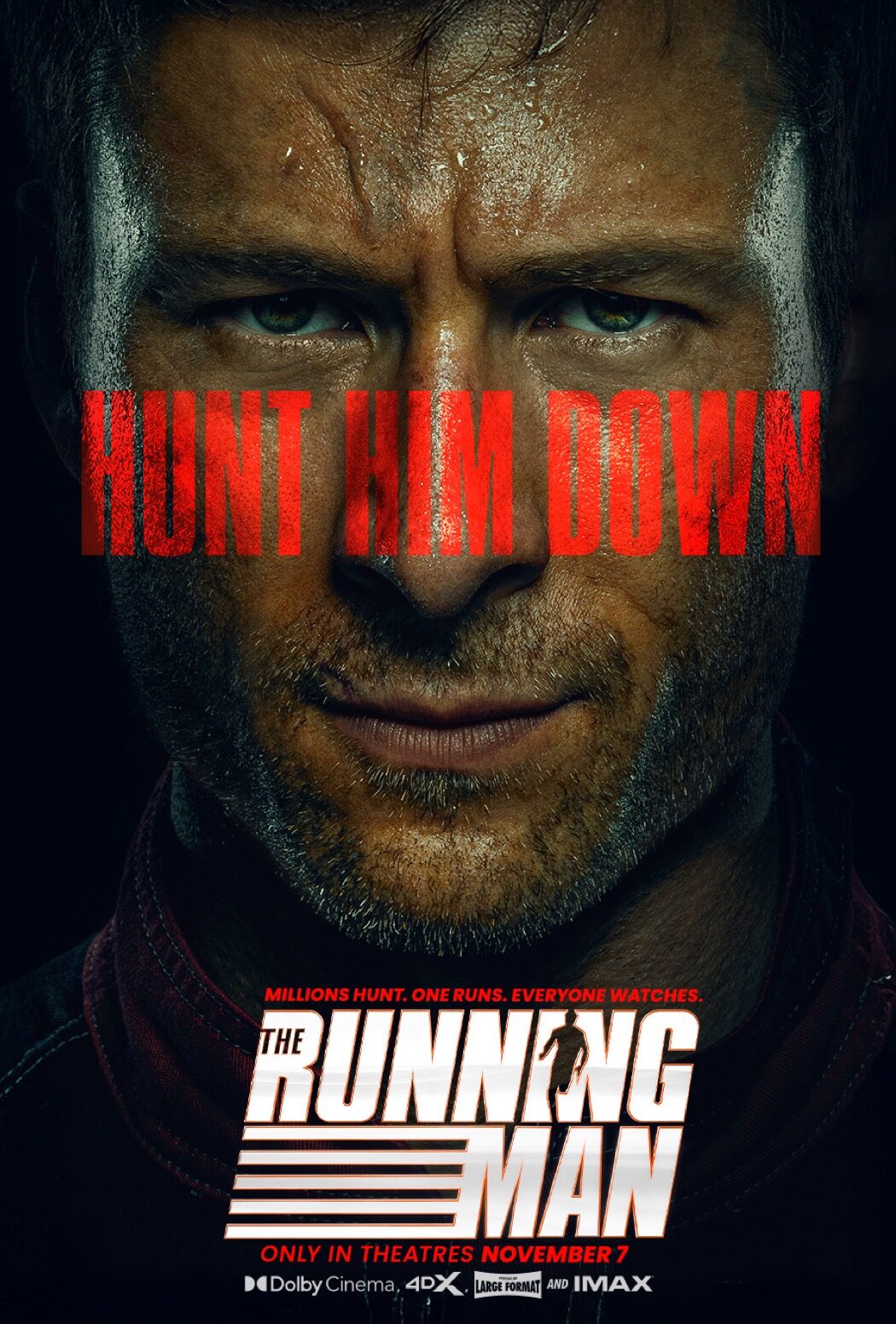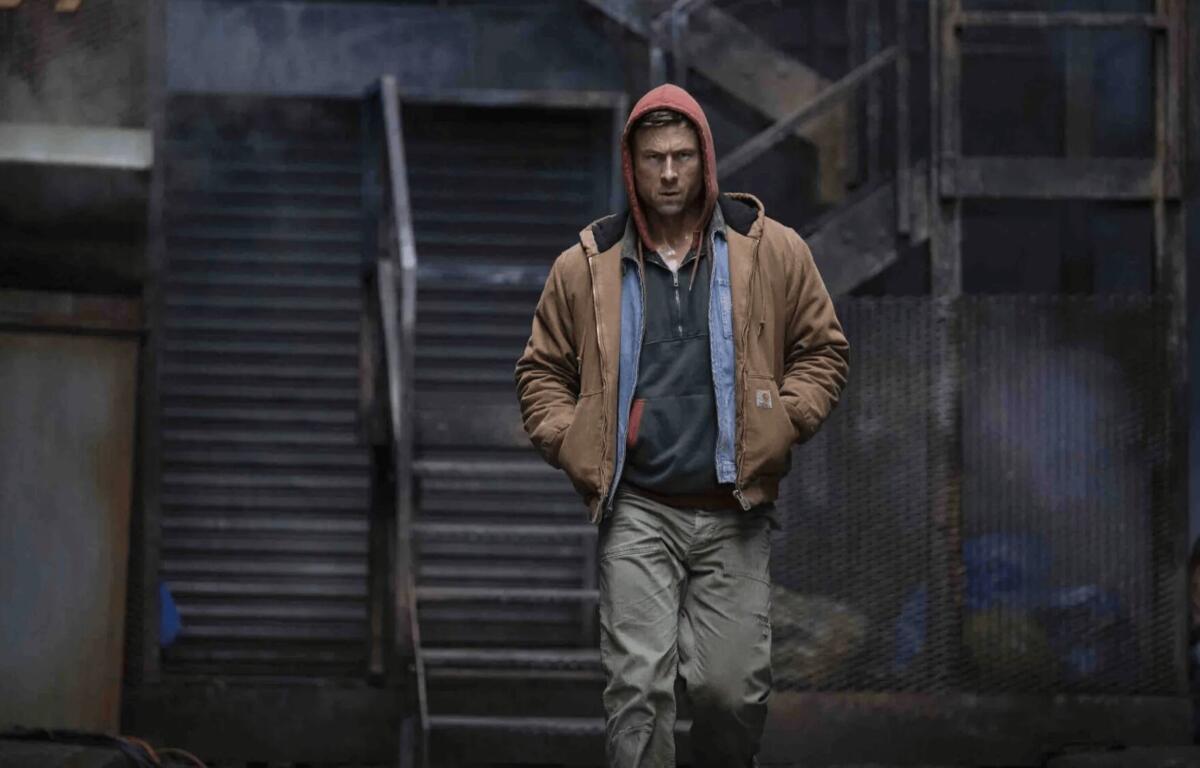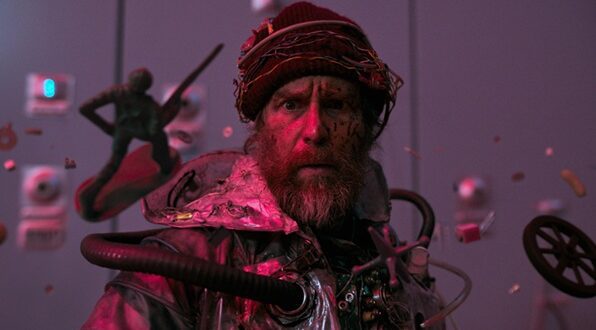ASHEVILLE, N.C. (828newsNOW) — Following “The Long Walk” in September, “The Running Man” is the second film adaptation this year of a Stephen King novel about dystopian, gamified exercise. Like its downer cousin, I wouldn’t race to see it.
Read more in our 828reviewsNOW look at Edgar Wright’s new movie.
“THE RUNNING MAN” (2025, 133 min., directed by Edgar Wright)
If you refuse to pace yourself during a race, you run the risk of burning out before the finish, an adage for virtually every footrace but the wind sprint. At 2 hours and 13 minutes, a wind sprint “The Running Man” is not. Edgar Wright’s latest starts steady but climaxes early, lamely limping over the finish line in the third act.
That lopsided structure is actually true to King’s novel. Published in 1982 and set in 2025, “The Running Man” is named for a dystopian game show at the novel’s center. Like a lethal game of tag, contestants on The Running Man are released into the world and tasked with evading capture for 30 days, winning more money for every day they remain alive. A team of “hunters” are the main opponents of the “runner,” using all the resources at the game show network’s disposal to find and kill the contestants, but the entire nation is encouraged to participate, rewarded for calling in sightings of the runners.

The story follows Ben Richards, an angry, anarchic and impoverished man who competes on the show in a desperate effort to earn money for his ailing wife and infant child. Richards, played by Glen Powell in Wright’s film, is a force of nature in the novel, literally and figuratively spitting in the face of the network in an utterly thrilling game of cat and mouse. The book is about wealth inequality, global pollution and a corrupt entertainment industry, but for the first two thirds, it’s also a terrifically fun time.
The film is remarkably faithful to the novel, albeit with a few stylistic updates. The characters are the same, the themes are the same and the structure, unfortunately, is the same. Just like the book, the last chunk of “The Running Man” takes its propulsive plot and cripples it. Plot twists and ferocious jabs of commentary become a meandering and exasperating hobble to an unsatisfying ending.
Wright is an incredibly kinetic director, making a name for himself with funny, fast-cutting genre hits like “Baby Driver,” “Scott Pilgrim vs. the World” and “Shaun of the Dead.” The best parts of his adaptation of “The Running Man” are when his breathless filmmaking style hits its stride with King’s pulpy plot twists. In a few legs of the story, Wright even found ways to improve sections of the novel. An exemplar sequence comes when Wright trades in a tense, spare escape scene from the book for a “Home Alone”-style barrage of hijinks starring “Scott Pilgrim” star Michael Cera.
It’s a drag that Wright couldn’t improve the end of the book, too. His conclusion to “The Running Man” is slightly different than the source text, but both fall flat on their face in front of the finish line.
Like getting a charley horse at the end of a 5k, the third act of “The Running Man” is painful, frustrating and completely momentum-killing. There’s so much to recommend from the beginning of the film, including a few deft social critiques, but the finale is overloaded with shoehorned commentary. The anarchic spirit of the film is communicated best in its explosive action sequences, not its pat, awkward dialogue.
Maybe Wright wasn’t the right man for the job. Maybe Powell could’ve brought more pow to the part. Maybe there’s a reason “The Running Man” hasn’t been crowned the best of King’s books. Whatever the case may be, “The Running Man” is a total “meh.”







